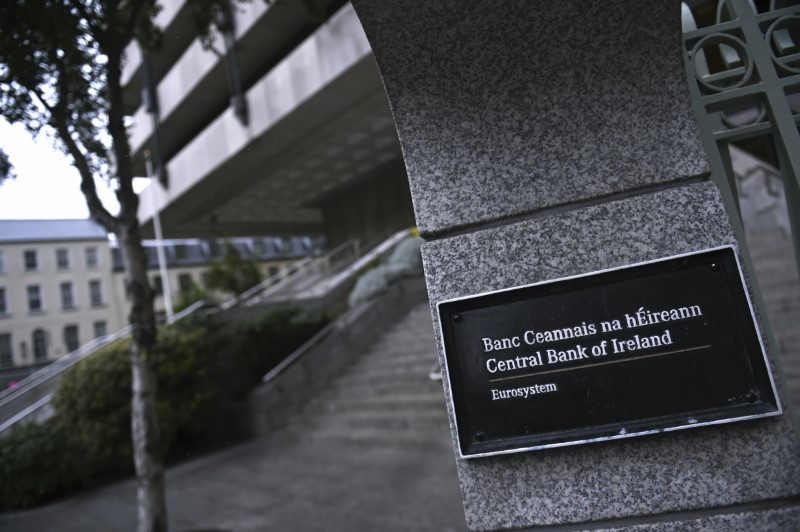 © Reuters. A sign is displayed outside the Central Bank of Ireland in Dublin
© Reuters. A sign is displayed outside the Central Bank of Ireland in DublinDUBLIN (Reuters) – Ireland’s central bank highlighted on Tuesday the risk of overheating in the economy and lowered its unemployment forecast for 2018 against a backdrop of strengthening domestic demand.
Unemployment peaked at 16 percent in 2012, when Ireland was midway through a three-year international bailout, but has fallen especially sharply in recent months as the economy rebounded to be the best performing in Europe since 2014.
With the jobless rate already at 5.1 percent at the end of June, the central bank estimated unemployment would average 5.4 percent across this year as a whole versus 5.6 percent in its last quarterly update.
As the country gets closer to full employment, the central bank has called on the government to start running budget surpluses sooner than currently planned to enable counter-cyclical fiscal easing during the next downturn.
“The continued growth in the economy, which is broadly balanced between domestic and export activity, is to be welcomed,” Mark Cassidy, Director of Economics and Statistics, said in a statement.
“Domestically, the strength of economic growth means our economy risks hitting full capacity, which gives rise to the risk of overheating or boom-bust cycles. This underscores the importance of building fiscal buffers during the good times.”
The central bank expects gross domestic product to grow by 4.7 percent this year and by 4.2 percent next while underlying domestic demand – seen as a better gauge of activity by most economists – is set to grow 4.4 percent in 2018 and 4.1 percent in 2019, up from 2.9 percent last year.
Risks to the Irish economy include a costly diversion of resources to logistics and trade-processing systems in the event of a “no deal” Brexit and protectionist pressures and shifts in the international tax regime.
The central bank has calculated that if Britain leaves the European Union without a formal divorce agreement, this would shave 3.2 percent off the Irish economy over 10 years, and result in the creation of around 40,000 fewer jobs.
Fusion Media or anyone involved with Fusion Media will not accept any liability for loss or damage as a result of reliance on the information including data, quotes, charts and buy/sell signals contained within this website. Please be fully informed regarding the risks and costs associated with trading the financial markets, it is one of the riskiest investment forms possible.
Source: Investing.com





























